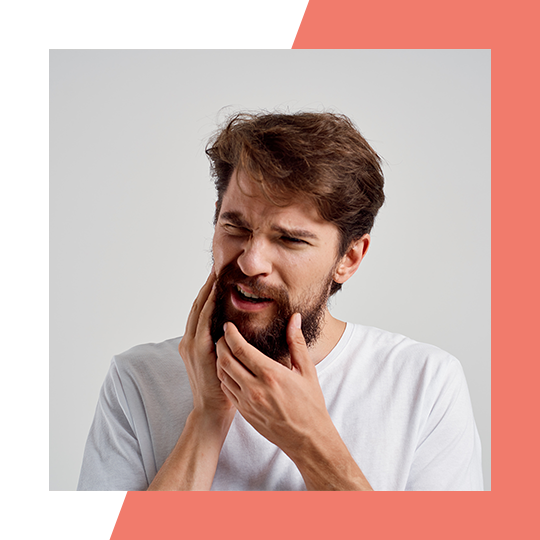Clenching, Grinding, and Jaw Pain Help Near You
Understanding TMJ disorders and finding relief for jaw pain, grinding, and related symptoms.

Teeth Grinding
Teeth grinding, or bruxism, often occurs during sleep and can stem from stress, an abnormal bite, crooked or missing teeth, or sleep apnea. Since grinding usually happens unconsciously, symptoms like headaches, jaw soreness, or tooth wear may be the first signs. Left untreated, bruxism can lead to serious issues like fractures, tooth loss, or the need for crowns, implants, or dentures. To protect your teeth, ask our dentist about a custom mouth guard at your next appointment.
Clicking Or Locked Jaw
The temporomandibular joint (TMJ) near your ears connects your jaw to your skull, enabling movement like chewing and speaking. Clicking or locking of the jaw may signal TMD, caused by injury, inflammation, or other issues.
Mild cases often improve with lifestyle changes, such as avoiding gum, eating soft foods, using a night guard, or taking anti-inflammatory medications. Severe cases may require professional treatment, with surgery being a rare last resort.

Treatment
During your appointment, we will assess your teeth and mouth for signs of wear and use methods such as a full oral exam, panoramic x-rays, 3-D scans, and high-definition photos to identify any issues and create a personalized treatment plan.
TMJ dysfunction can be treated in two main ways: correcting jaw alignment with braces or orthodontic appliances, or establishing a proper bite position with a temporary appliance, followed by restoring teeth with crowns. Early treatment is key to preventing future oral health problems.
Your trusted Hamilton dentist near you!
We can’t wait to welcome you! Call us at (905) 388-8888 or complete the form below to book your appointment. We’ll do our best to fit your schedule. Please arrive 15 minutes early for your visit.
(905) 388-8888
865 Upper James St, Unit 4, Hamilton, ON, L9C 3A3
Hamilton Dentist
We understand that trying to find a nearby dentist you can trust is difficult, that is why we make it easy for you to work with us.
Practice Hours
© 2025 All Rights Reserved | Mountcrest Dental
